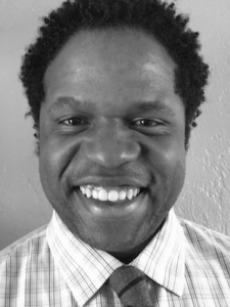
Jerome Dotson is a native of Atlanta, Georgia and a graduate of Morehouse College. He holds a Ph.D. in U.S. history and an M.A. in African American Studies from the University of Wisconsin-Madison. His research and teaching interests focus on the African American history, Southern food ways, hip hop, folklore and politics of the body. He previously taught at the University of Washington and Seattle University.
Currently, he is working on a book-length manuscript, which explores the ways eating and diet have animated Black radicalism in the 19th and 20th centuries. The manuscript is tentatively titled: “No Pork on My Fork: Race, Dietary Reform and the Long Civil Rights Movement. “No Pork on My Fork” interrogates the cultural, social, and political significance of food consumption through an interrogation of the metonymic relationship between the black body and pork from slavery through 1990s Hip Hop. This trans-historical approach is rooted in Food Studies methodology. By drawing on the work of scholars like Charlotte Biltekoff, Frederick Douglass Opie and Psyche Williams-Forson, the book seeks to expand the discussion on diet and racial subjectivity by focusing on the ways African Americans have used dietary reform to promote social and political change.
PUBLICATIONS
- "No Pork on My Fork": Race, Diet, and the Long Civil Rights Movement
- Dotson, Jerome. "'The Republic of Porkdom': Pork Consumption, Kentucky, and the Cotton South." Journal of Arizona History 64, no. 3 (2023): 359-376. muse.jhu.edu/article/913316.
- "We Raised Hogs:" A Meditation on Pork, Family, and Memory" in Felipe Hinojosa, and Rudy P. Guevarra, Culinary Mestizaje Racial Mixing and Foodways across the United States (Austin: University of Texas Press, 2025). https://utpress.utexas.edu/9781477332566/
- "Make Your Mouth Water": Slave Geophagy, Medicalization, and the Afro-Atlantic Origins of a Southern Foodway (Revise and Resubmit; Food & Foodways)
- "Sammy Davis, Jr., Soul Food, and the Making of Black/Jewish Subjectivity" (In Progress)

